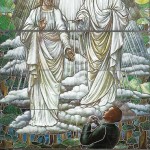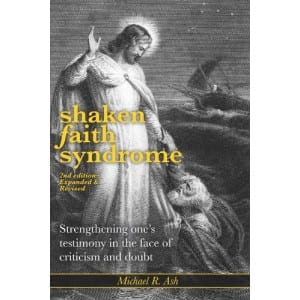Podcast: Download (8.3MB)
Subscribe: RSS
 In this episode of Religion Today, Martin Tanner discusses some of the issues pertaining to the role of women in the Church. This episode originally aired on KSL Radio on November 17, 2013 and appears here by permission of KSL Radio. The opinions expressed do not necessarily represent the views of the Church of Jesus Christ of Latter-day Saints or of FairMormon.
In this episode of Religion Today, Martin Tanner discusses some of the issues pertaining to the role of women in the Church. This episode originally aired on KSL Radio on November 17, 2013 and appears here by permission of KSL Radio. The opinions expressed do not necessarily represent the views of the Church of Jesus Christ of Latter-day Saints or of FairMormon.
Listeners will note that the first part of this episode is missing. We apologize for this inconvenience.






